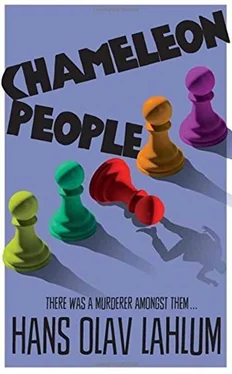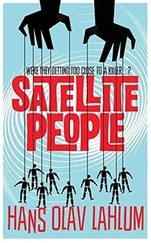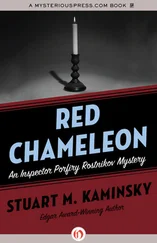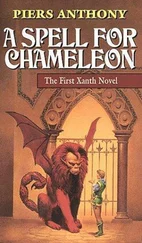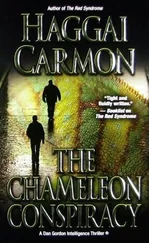Hauk Rebne Westgaard had been waiting and opened the door within seconds of me ringing the bell. He was dressed in simple work clothes. His hat lay on the hat rack in the hall. I noted in passing that it was the same shape, if not the same colour, as the one worn by Alexander Svasnikov when he was following me around the streets of Oslo. Svasnikov’s hat was brown and this was green, but I thought to myself that on a dark street at night in Oslo, the hats could certainly look the same from a window.
We went into the living room. Almost instinctively, both Hauk Rebne Westgaard and I sat down in the same places as before with about three feet of table between us.
‘So, what brings you back to the farm today?’ my host asked.
I carefully put the bag with the hairs in it down on the table. He looked at me with bright anticipation, which faded as soon as I said that it was head hair from a person, but they could not establish the identity of the person from the hair. However, he perked up again when I said that we were starting to get an outline of what had happened. Up to the point it certainly seemed that Hauk Rebne Westgaard was genuinely interested in clearing up what had happened when his girlfriend died.
I told him in brief that Eva Bjølhaugen had in all probability been drowned in 1932. We had reason to believe that Per Johan Fredriksen had been in her room soon after Hauk himself, and that Kjell Arne Ramdal had been there after Fredriksen. However, we also had reason to believe that Ramdal left the room at a quarter past six, at which point, Eva had been unharmed and the bed untouched. We were now trying to establish what happened in the next two hours.
Hauk Rebne Westgaard’s eyes widened when I mentioned drowning, and he listened to everything that followed intently. When I said that I now had to ask him some personal questions and that the answers could be decisive in solving the case of his girlfriend’s murder, he quickly gave me the go-ahead.
‘All right, I will answer to the best of my abilities,’ he said, sitting up straight in his chair, his face serious in concentration.
I started tactfully by asking if Eva had been religious. He shook his head sharply.
‘Not particularly. She went to church at Christmas and Easter and the like, but did not have a strong Christian faith. In fact, her father despaired at her lack of faith. He was a little happier with her sister on that score, although never completely satisfied with either of them.’
This prompted me to ask what kind of relationship Eva had with her sister Oda.
‘Well, they were very different – the one blonde and gregarious, the other dark and taciturn. Eva was someone everyone noticed as soon as she walked into a room, and Oda was often the person you forgot being there at all. Eva dominated, despite being younger. They spent a lot of time together, but were often bickering. But that’s not unusual for sisters at that age, so I don’t think any of us gave it much thought.’
‘Eva liked attention, even after you became a couple.’
He gave an even sharper nod this time. ‘Absolutely. Eva got a lot of attention from a lot of men and was a rather self-centred young woman who didn’t say no. I took it all with a pinch of salt. I just thought I was lucky to have such a beautiful and attractive girlfriend. And I knew that she was a good girl, proper…’
He talked in a low and slightly tense voice. I increasingly got the feeling that this was leading somewhere.
‘Almost too proper, in fact,’ I pushed, gently.
Hauk Rebne Westgaard looked at me, his eyes still wide, and gave a barely discernible nod. It was the last encouragement I needed to spur me on.
‘Because the reason you were so upset and surprised about the hairs in Eva’s unmade bed, which you knew were not yours, was because you yourself had never been to bed with her.’
I fixed him with my gaze and thought about Patricia as I said this.
She was right again.
As I watched him, Hauk’s mask cracked and another person appeared. A vulnerable, unhappy and uncertain young man. His eyes filled with tears and his hands trembled violently. As did his voice when, eventually, he answered.
‘I had been to bed with her, but not like that. Not-’ He stopped and sat in silence for a moment, then carried on quickly. ‘I had not slept with her, no. And it became an obsession. She was my first girlfriend, the tension and expectations were so great. Day after day passed, week after week and month after month, with ever new excuses. To me, she was the most beautiful woman in the world, and she was so exciting and provocative. I knew that it would be over soon, but was determined that we could not split up before we had-’
He stopped again. I did not push him, but tried instead to coax him on whilst he remained in such an open and emotional mood.
‘And your life was not easy. So it felt as though the world was crashing down around you when she told you that she had fallen for someone else and wanted to end the relationship. Because that is what she said, isn’t it? She broke up with you and said that you would never get what you wanted most. You desired her and you hated her.’
I stared at him intensely. His nod was almost imperceptible, but his voice was controlled when he spoke.
‘Yes. That is what she said. I thought about throwing myself at her, but I didn’t. Instead, I turned around and fled. And I thought about knocking on her door later, but I didn’t. I hoped and prayed that she would have changed her mind by the time we went down to dinner. But she never came down. When we went up to her room, she was dead. I still do not know who was in bed with her before she died. And nor do I know who killed her. Please tell me if you know. Please.’
Hauk Rebne Westgaard talked in short bursts and stared straight ahead with a distant look in his eyes as he spoke.
I believed him. And I thought that if what he said was true, here was a man who had dedicated his adult life to his family and their land – without ever experiencing any physical love himself.
I did not think that Hauk Rebne Westgaard had killed his girlfriend in 1932, but could still not tell him who had. So I said that I was working on it and would let him know as soon as I could, and then continued with my questioning.
‘Some other things happened in 1932. It was not just your girlfriend who died, but your father as well. You gave me some false information the last time we spoke.’
I took out the Photostat copies of the documents from the sheriff’s office and laid them on the table between us.
‘Your father was not declared of unsound mind by the court. He died in what the sheriff described, after a short investigation, as an accident, having fallen from a cliff onto the rocks below, here on the property. But it was not an accident, was it?’
It was a challenging question that once again caused an abrupt change in mood. Within seconds, Hauk Rebne Westgaard took on a third face, one without tears or sorrow. It was a ruthless and cynical face. His eyes suddenly ceased to blink. And his voice was hard, almost threatening, when he spoke.
‘My father lived on the edge of insanity and was about to drink away the farm and himself to death. The court would have declared him of unsound mind. However, the hearing was postponed for several weeks as the judge was ill, so a new judge had to be appointed. And in the meantime, the ground was burning beneath our feet. My father was mad and would believe anything. The day before he had given away half an acre for a saucepan. In his confused and drunken state, he would often wander to all kinds of places, in all kinds of weather. It was slippery up there by the cliff, and when the rain had stopped there was no trace that anyone else had been there. So the sheriff quickly concluded that it had been an accident and that he had slipped and lost his footing. Everyone agreed that that must be what had happened.’
Читать дальше
